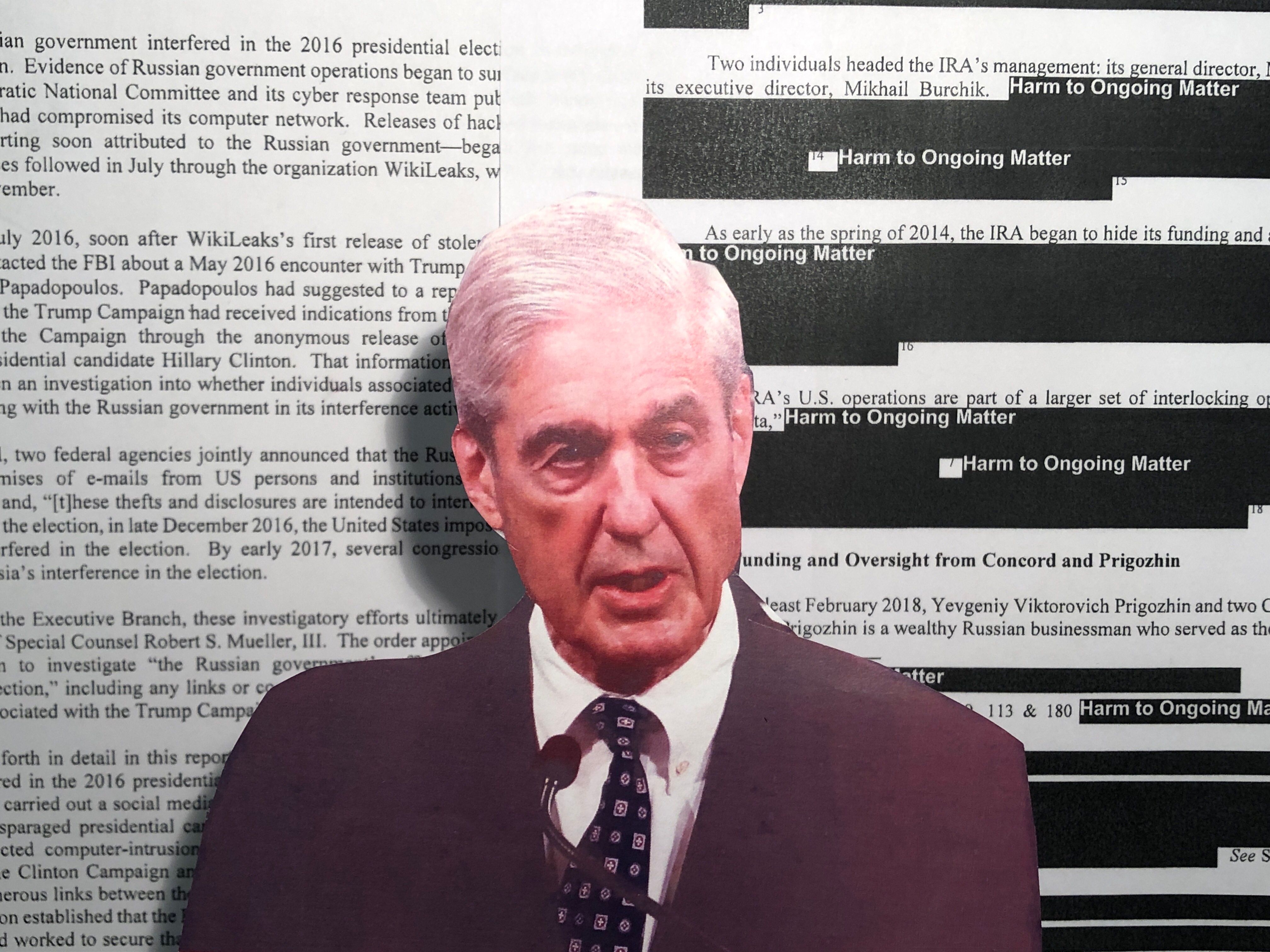Mueller Speaks: Impeachment Spark, or Double-Negative Legacy?
Special Counsel Robert S. Mueller just gave a brief statement about his report on the Russian government's attempts to influence the 2016 presidential election, and the question of whether President Trump sought to obstruct that inquiry. Here are two takes on what Mr Mueller said.
Robert Mueller's double-negative legacy
by Willis Sparks
With his brief statement this morning, Robert Mueller leaves behind a "double negative" legacy regarding the question of whether President Trump sought to obstruct justice: we didn't have confidence that the president didn't commit a crime.
And so there's something here to disappoint both the president and his detractors.
President Trump can't be happy that Mueller made explicit in this statement that "Charging the president with a crime was not an option we could consider" under Department of Justice policy. That comment will provoke endless speculation that Trump avoided prosecution only because he's president.
But Mueller's statement is also a disappointment for Trump's critics, because he's made clear that for him to address any questions that extend beyond the text of his report, including before Congress, would be grossly unfair to the president, who can't have a trial to defend himself.
We're left with two main conclusions.
The first is political. The question of President Trump's culpability—in conspiring with the Russians to interfere in the election, in obstructing justice, or in anything else—rests entirely with Congress and a potential impeachment process. Knowing the Republican-majority Senate will not convict the president, Democrats in the House of Representatives must decide whether they have a constitutional responsibility to try to impeach him.
The second is the one Robert Mueller wants us to consider his report's true takeaway: "I will close by reiterating the central allegation of our indictments—that there were multiple, systematic efforts to interfere in our election. That allegation deserves the attention of every American."
Mueller Just Lit the Impeachment Fuse on Live TV
by Kevin Allison
Everything that Special Counsel Mueller said this morning was in the report he presented to the Justice Department back in March. But his brief remarks could still mark the moment that the slow-burning fuse of impeachment finally started to spark, flicker, and pick up speed.
Here' why: We're living in a TL;DR political and media age when "read the report" isn't enough. The lines between Reality TV and politics have become so blurred that to hear direct from one of the main characters in the drama – as we just did -- is likely to have a bigger impact, not only on the public but on Congress.
Mueller just stood up on live TV and stated flatly that "if we had had confidence that the president clearly did not commit a crime, we would have said so," while emphasizing that charging a sitting president wasn't an option.
That's politically explosive in a way that the original report was not. Coming from a man whose impartiality and dedication to upholding US institutions can't reasonably be questioned, a statement like that – for the cameras -- throws the ball squarely into Congress's court.
The evidence to consider is all there, in blistering detail -- much of it beginning on page 208 of the report. Will a dysfunctional Congress – and a Democratic Party divided over the question of impeachment – move forward to do so? Mueller's clear and public statement this morning raises the stakes dramatically.
- Life After the Mueller Report - GZERO Media ›
- Three questions about the Mueller Report - GZERO Media ›
